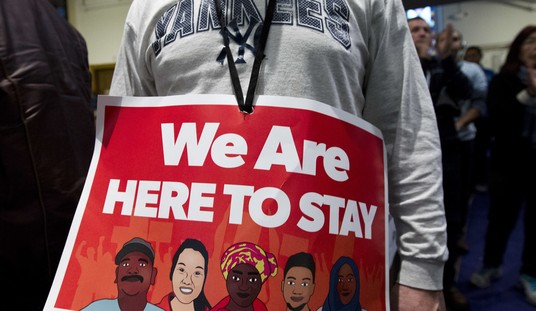November 2nd, 2010, will be a big day in American history. It’s the day we vote in the midterm elections that will likely see historic Republican gains in both houses of Congress. It’s also the day that the United States Supreme Court considers the case of Schwarzenegger v. Entertainment Merchants Association.
This case stems from a 2005 California law that prohibited the sale of “unsuitable” video games to minors. The Entertainment Software Rating Board has long helmed a voluntary industry endeavor to rate the appropriateness of video games — and it’s been an acknowledged success, with the Federal Communications Commission citing it as a model for other creative-content efforts to protect families and children. According to the FCC, “the video game industry … provides one of the most robust voluntary rating systems available.” That’s good news if you’re a believer in private and voluntary initiatives rather than government-mandated standards.
 Unfortunately, that wasn’t enough for the Democrats and liberals who control Sacramento. Need it be said, they’re not believers in anything but what’s coerced and imposed by their own dictate. Thus 2005’s California Assembly Bill 1179 — authored by one Democratic State Senator Leland Yee, would-be petty scourge of Sarah Palin — which imposed a dramatic and draconian set of restrictions on video-game sales: restrictions so broad as to obviously violate the First Amendment. The implementation of the law was almost immediately blocked by a federal judge in December 2005. Not a full two years later, the U.S. District Court for the Northern District of California ruled the law un-Constitutional in August 2007. Exactly one year after that, in August 2008, the state of California was made to compensate the Entertainment Software Association $282,794 for the latter’s expenses in defending its industry against the flawed law. And six months after that, in February 2009, the Ninth U.S. Circuit Court of Appeals upheld the District Court’s finding that the law is un-Constitutional.
Unfortunately, that wasn’t enough for the Democrats and liberals who control Sacramento. Need it be said, they’re not believers in anything but what’s coerced and imposed by their own dictate. Thus 2005’s California Assembly Bill 1179 — authored by one Democratic State Senator Leland Yee, would-be petty scourge of Sarah Palin — which imposed a dramatic and draconian set of restrictions on video-game sales: restrictions so broad as to obviously violate the First Amendment. The implementation of the law was almost immediately blocked by a federal judge in December 2005. Not a full two years later, the U.S. District Court for the Northern District of California ruled the law un-Constitutional in August 2007. Exactly one year after that, in August 2008, the state of California was made to compensate the Entertainment Software Association $282,794 for the latter’s expenses in defending its industry against the flawed law. And six months after that, in February 2009, the Ninth U.S. Circuit Court of Appeals upheld the District Court’s finding that the law is un-Constitutional.
Think about that: the law as written was never enforced; overturned once; the state forced to compensate its intended victim; and then overturned again by the most liberal federal circuit in the nation. Even the ultra-liberal, statist New York Times editorial board is against it. Yet California will, in under 60 days, pursue it to the U.S. Supreme Court regardless. What good fortune the Golden State apparently has no larger problems to contend with.
Why is the state of California pursuing things to this absurd length? Partly it’s because of the Attorney General, one Edmund Gerald “Jerry” Brown, Jr., who has had no political disincentive to do otherwise since assuming office in January 2009. (Contrast, if you will, with his refusal to defend Proposition 8.) Moral panic makes for good electioneering, and Brown’s third quest for California’s highest office is surely aided in some way by this misguided “protection” of children.
The other reason we see this futile squandering of California’s diminishing fiscal resources is the sheer self-delusion of the liberal clique that constitutes its ruling class. State Senator Yee is as good an example as any: in speaking with the Los Angeles Times about his oft-thwarted video-game bill this past April, he admitted that though he himself does not play video games, “I have seen individuals using a baseball bat and bludgeoning a hooker to death” in them. “If you demonstrate to a child that you can do these things,” intones Yee, “it becomes part of their repertoire for dealing with anger.” Here’s the problem: there’s no evidence to substantiate that, and there’s even evidence to the contrary, with a study last month concluding that violent video games actually reduce stress and hence real-world violence. Yee may want to believe that video-game manufacturers are creating little Frankensteins, but the truth is that such “little Frankensteins” as exist had problems before and independent of their gaming habits.
Let us pause here for a moment to contemplate where, exactly, Democratic California State Senator Leland Yee would have seen a person “using a baseball bat and bludgeoning a hooker to death” in a video game. This is presumably a reference to Grand Theft Auto IV, a thoroughly execrable game in which the murder of prostitutes — and everyone else — is allowed and encouraged. This excited much comment in 2008. GTA4 is, as it happens, rated M under the ESRB system, which is basically the equivalent of an MPAA R-rated movie. Who really believes Leland Yee associates with GTA4 gamers? Who further believes he’s witnessed, or even credibly heard of, children who added GTA4 methods to “their repertoire[s] for dealing with anger”? The Yee household may suffer from moral anarchy demanding legislative intervention, but the overwhelming number of California homes and families do not.
What will the U.S. Supreme Court decide when it takes up this case on Election Day? There’s no telling, but proponents of basic liberties — including the rights of parents to parent without state prompting — may reasonably hope the Court will uphold every other federal judge who has had to address this bad law. As Jerry Brown has already admitted in his brief to the Supreme Court, upholding Yee’s law requires treating video games as the de facto equivalent of pornography. That’s so ridiculous, and so unsupportable by any evidence, as to transport any sustainment of the law to the edge of fantasy. But that doesn’t mean it won’t happen. On November 2nd, 2010, one battle for liberty will end with the conclusion of the midterm elections — and another will begin in the highest court of the land.













Join the conversation as a VIP Member